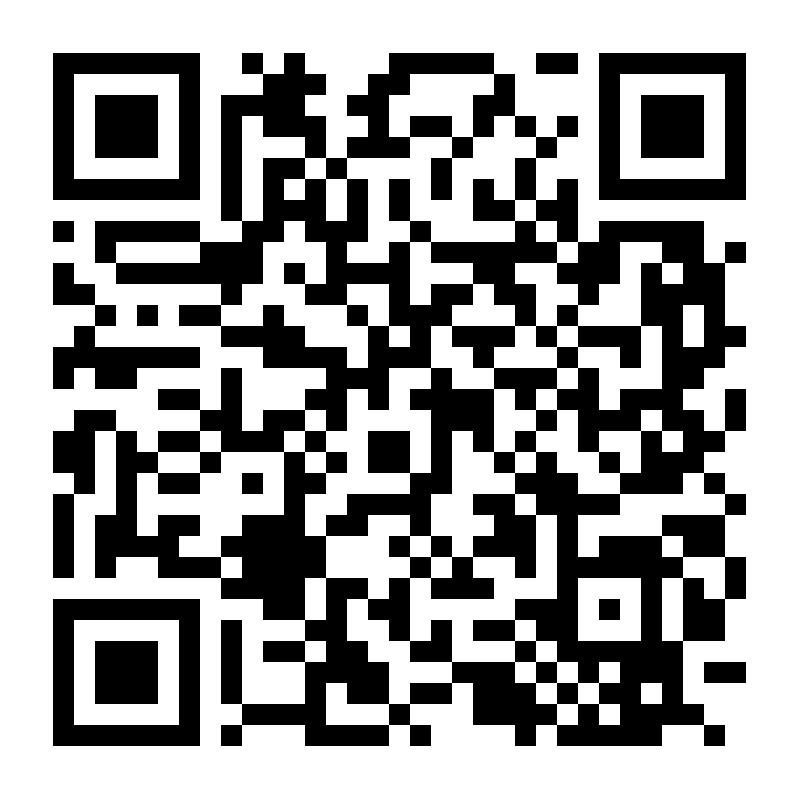MU Essay Competition is Officially Recommended by Colleges of Cambridge and Oxford
50+ countries globally participating
Over 10000 exceptional students submit annually
4 major economics research directions
Endorsed by Colleges of Cambridge and Oxford
Eligibility: 15–18 years old | Requirement: 1,000–1,500 words English essay | Registration Deadline: March 1st, 2026
4
Research directions
![]()
Mathematical Economics
![]()
Behavioral Economics
![]()
International Economics
![]()
Environmental Economics
Introduction
The MU Economics Essay Competition, organized by Minds Underground (MU). MU Essay Competition is officially recommended by the Balliol college, University of Oxford, and Homerton college, University of Cambridge, and is designed to empower young people worldwide to examine global issues through the lens of economics. The competition encourages students to develop critical and independent insights, while fostering a lasting passion for the subject.
Covering key subfields—including international economics, mathematical economics, behavioral economics, and environmental economics—the competition offers high school students a unique opportunity to sharpen their reasoning, analytical, and communication skills.
With over 10,000 participants from more than 50 countries, the MU Essay Competition has grown into one of the most distinguished academic events in its field. Participation not only strengthens students’ intellectual abilities, but also enhances their academic profiles, interview performance, and university applications.
Exceptional participants are further invited to the MU Oxford Economics Camp, where they refine their research under expert mentorship, strengthen their problem-solving and research skills, and collaborate with peers from around the globe.
In essence, the MU Economics Essay Competition is more than just a contest—it is a platform for young people to challenge themselves, exchange ideas across cultures, and contribute fresh perspectives to some of the world’s most pressing issues. By cultivating intellectual curiosity and global dialogue, the competition inspires the next generation of economists and leaders to shape a more thoughtful and sustainable future.


Participating Nations and Regions

Oxbridge Recommendation
Homerton College, University of Cambridge:
Homerton College, known for its emphasis on social sciences, lists the MU Essay Competition among its recommended activities.



Balliol College, University of Oxford:
As one of Oxford’s oldest colleges, Balliol listed MU Essay Competition in the official recommended activity

Information
2025–2026
MU
Economics
Essay
Competition
■ How to Participate
Online submission. Choose a topic from the list and write an essay.
■ Topic Selection
MU would set different topics around current important issues annually. For 2025–2026, MU focuses on four major economics subfields, and adopts open-ended questions to encourage critical analysis from multiple angles (e.g., theory, data, policy). Originality and reasoning matter more than format.
■ Essay Requirements
- English, 1,000–1,500 words (References are not included in the word count).
- Harvard referencing style.
- No more than 2 authors per essay.
■ Eligibility:15–18 years old.
■ Registration Deadline:March 1st, 2026
The organizing committee will dynamically assess the registration number. If the upper limit for review is reached before the deadline, the registration channel will be closed in advance. Therefore, it is recommended that students sign up as early as possible to ensure their qualification for the competition.
■ Submission deadline:March 15, 2026.
Essay Topics

Mathematical Economics
Mathematical economics helps us understand economic behaviors and market mechanisms in reality through model construction and quantitative analysis. The following topics include queuing phenomena, information transparency, and happiness measurement, encouraging students to conduct in-depth thinking by applying game theory, utility functions, and modeling. It is suitable for students who are interested in mathematics, economics, data analysis, or those who hope to enter fields such as finance, technology, and policy study in the future. Whether it is algorithmic trading, risk modeling or financial behavior analysis, mathematical economics is an important foundation for building a rational worldview.
Topic 1: Can you use mathematics to explain why people queue at some coffee shops but not others?
Hints: Think about models of decision-making under uncertainty, externalities, pricing, or expectations. Could queuing be a rational signal of quality? Use game theory, utility models or network effects.
Topic 2: Imagine a world where everyone has perfect information. What changes in how markets work?
Hints: Explore market efficiency, price discovery, asymmetric information, and the role of speculation or advertising.
Topic 3: How would you design a mathematical model to measure “economic happiness”?
Hints: Define what variables matter (e.g. income, leisure, inequality). Consider utility, GDP alternatives, or wellbeing indexes. How would you test or apply it?

Behavioral Economics
Behavioral economics focuses on the decision-making patterns of human beings under the influence of limited rationality, emotions and psychological biases, revealing why people in the real world often consume, invest or make judgments "irrationally". The following topics encourage students to explore the deep logic behind economic behavior from the perspectives of consumer bias, expectations, and signalling. This field is widely applied in marketing, business behavior research, policy design, etc., and is an important tool for understanding human behavior and formulating effective strategies. It is suitable for students who are interested in the intersection of human nature, social phenomena and economic decision-making, especially for those who hope to pursue careers in business, public administration and psychology in the future.
Topic 1: Why do people tip in restaurants they’ll never return to?
Hints: Explore social norms, reciprocity, self-image, and irrational generosity. Consider experimental findings.
Topic 2: : If humans were truly rational, would supermarkets still exist in their current form?
Hints: Think about pricing psychology, choice architecture, and impulse behaviour. Consider how shopping would change in a hyper-rational world.
Topic 3: : Why do people pay more for branded water? Can behavioural economics fix this?
Hints: Explore perceived value, framing, signaling, and consumer biases. What policies (if any) should intervene?

International Economics
International economics studies trade, capital flows, monetary policy among countries, helping us understand the interweaving of economy and politics in the era of globalization. The following topics focus on key issues such as currency credibility, border opening, and digital currencies challenging the status of the US dollar, encouraging students to comprehensively analyze policies, technologies, geopolitics, and market mechanisms. International Economics is widely applied in fields such as international finance, transnational policy, and global market analysis. It is suitable for students who hope to engage in international economics research, international financial investment, international relations or economic policy research in the future.
Topic 1: A new country is formed and launches its own currency. What determines whether the world takes it seriously?
Hints: Consider monetary policy, central bank credibility, geopolitical alliances, and investor confidence. Case studies welcome!
Topic 2: What would happen if all borders were opened overnight?
Hints: Explore the flow of labour, capital, and goods. Discuss short vs long-term impacts, institutional strain,and economic opportunity.
Topic 3: Could a digital-only currency replace the US dollar as the world’s reserve?
Hints: Compare digital currencies vs fiat, look at trust, power, tech infrastructure. How do politics and finance intersect?

Environmental Economics
Environmental economics focuses on sustainable development under limited resources and ecological pressure. And it suggests the application of economic tools to analyze environmental value, externalities and policy effects. In an era of intensifying ecological crises, this discipline is becoming increasingly crucial. The following topics focus on issues such as externality, carbon emission governance, and sustainable growth, guiding students to think about how to use economic models and policies to address climate challenges and ecological imbalances. This field is widely applied in areas such as green finance, environmental policies, and corporate sustainable strategies. It is suitable for students who are interested in nature, social responsibility, and systemic issues and are willing to propose innovative solutions from an interdisciplinary perspective.
Topic 1: Should we put a price on nature?
Hints: Think about ecosystem services, externalities, and valuation methods. Explore whether economic tools can meaningfully capture environmental value.
Topic 2: If climate change were a company, how would you bankrupt it?
Hints: Think creatively: subsidies, taxes, lawsuits, social pressure, or innovation. Can markets “defeat” emissions?
Topic 3: Is infinite economic growth on a finite planet a myth or a misunderstood goal?
Hints: Challenge GDP as a goal. Explore the circular economy, decoupling, or redefine what “growth” means in an ecological context.
Grading Criteria
1Understanding of the Question and Relevance (Score out of 15)
15:Sophisticated and precise understanding of the question; all arguments highly relevant.
12:Clear understanding with a strong focus on the question.
9:Generally relevant, but may miss subtle nuances or overgeneralise.
6:Partial misunderstanding or limited engagement with the core of the question.
3:Major misinterpretation or deviation from the question.
2Knowledge and Use of Economic Concepts (Score out of 20)
20:Demonstrates deep and accurate understanding of relevant economic ideas; goes well beyond the syllabus.
16:Strong command of appropriate theories and terminology, applied effectively.
12:Satisfactory knowledge with some inaccuracies or lack of depth.
8:Limited or patchy understanding; may misuse terms or apply concepts weakly.
4:Minimal understanding of economic content.
3Analysis and Argumentation (Score out of 20)
20:Excellent critical thinking and structured argumentation; alternative viewpoints evaluated.
16:Strong reasoning with logical development and clear line of argument.
12:Some analysis, but occasionally descriptive or unbalanced.
8:Basic or underdeveloped reasoning.
4:Disorganised or unsupported claims; lacks coherence.
4Originality and Independent Thought (Score out of 10)
10:Highly original argument, fresh perspective, or novel application of ideas.
8:Some unique insights or creative approach.
6:Mostly conventional with limited original input.
4:Repetitive or derivative.
2:No independent thought evident.
5Use of Evidence and Examples (Score out of 15)
15:Evidence is specific, relevant, and deeply integrated into the argument.
12:Good use of examples to support points.
9:Some relevant evidence, but not always effectively used.
6:Weak, generic, or poorly explained examples.
3:No meaningful use of evidence.
6Structure, Clarity, and Communication (Score out of 10)
10:Excellent structure and flow; ideas are clearly and elegantly expressed.
8:Well-organised and mostly clear.
6:Adequate clarity and structure; some repetition or awkward phrasing.
4:Hard to follow; inconsistent flow.
2:Disorganised and unclear.
7Technical and Logical Presentation of Argument (Score out of 5)
5:Argument develops with strong internal logic and technical clarity.
4:Mostly logical and well-explained.
3:Some confusion in how ideas link together.
2:Reasoning is unclear or weak.
1:Little logical structure.
8Referencing and Academic Style (Score out of 5)
5:Fully accurate referencing with consistent academic tone and formality.
4:Minor referencing errors; clear academic intent.
3:Referencing attempted but inconsistent or incomplete.
2:Poor or unclear referencing.
1:No referencing included.
Awards
The essay awards will be announced in April 2026, with outstanding winners invited to Oxford for the MU Oxford Economics Camp. Guided by leading economics mentors, students will engage deeply with the essence of economic issues, sharpen their critical thinking and research abilities, and develop rigorous, innovative solutions. By collaborating with peers from around the world, participants will not only showcase their individual research achievements but also broaden their horizons and enrich their perspectives. The Championship will culminate in the recognition of the most exceptional economic papers and presentations, celebrating the insight and creativity of the next generation of global economists.
Winner
Runner Up
Highly Commended
Commended

MU Oxford Economics Camp
Eligibility:Prize winners
Date:July 2026
Challenge Sessions

Modeling Challenge
Under the guidance of an economics mentor, students will learn how to construct and apply economic models to real-world issues (such as the carbon tax mechanism, technological unemployment, etc.). Participants will develop quantitative analysis or models and explain them using relevant theories and real-life data. Students compete individually or in teams of up to three. The projects will be assessed based on rigor, rationality, the variable selection, and the feasibility of the model.

Argumentation Challenge
Since strong arguments are essential in essay writing, this challenge focuses on helping students build clear, persuasive arguments. The mentor will guide students in using economic theories to support their reasoning, defend positions, and express ideas academically. Students will draw a prompt randomly, and will have 30 minutes to prepare, and deliver a 5-minute individual speech followed by a 2-minute Q&A session.

Debate Challenge
Students will form teams of four to engage in structured debates on controversial economic topics, considering various perspectives—macro, micro, and behavioral economics. Judging will focus on quality of evidence, logical flow, expression, and rebuttal skills. This challenge aims to sharpen critical thinking, teamwork and rapid response abilities.

Presentation Challenge
Drawing on all previous activities and knowledge gained, students will revise and present their essays to a panel explaining their research methods and findings. And students compete for the honor of "MU Oxford Economics Global Championship".
Students who win awards in the final presentation of the MU Oxford Economics Global Challenge will have the opportunity to publish their essay on international journals for free, allowing their research results to be displayed and recognized on a broader international platform, and further enhancing their academic influence and future development potential.

Academic sessions & Cultural experience
Academic sessions
 Economics Lectures
Economics Lectures
Economics lectures would be given by an economics lecturer or industry experts, deeply analyzing the research methods and practical significance of a complex economic issue, and enable students to understand how a true economist thinks about problems, analyzes models and constructs viewpoints.
 Oxbridge application workshop
Oxbridge application workshop
Specially designed for students who are determined to apply for an economics major at Oxford or Cambridge. It provides in-depth explanations on the course structure, interview format, credit requirements and preparation suggestions related to the admission of economics.
Cultural experience
 Formal dinner
Formal dinner
Take part in a traditional Cambridge formal dinner—an iconic part of college life. Dressed in formal attire, students will enjoy fine dining, and thoughtful conversation in a historic setting.
 Accommodation at Oxford
Accommodation at Oxford
Stay in the historic college dormitories of the University of Oxford, and immerse yourself in the academic and cultural atmosphere.

